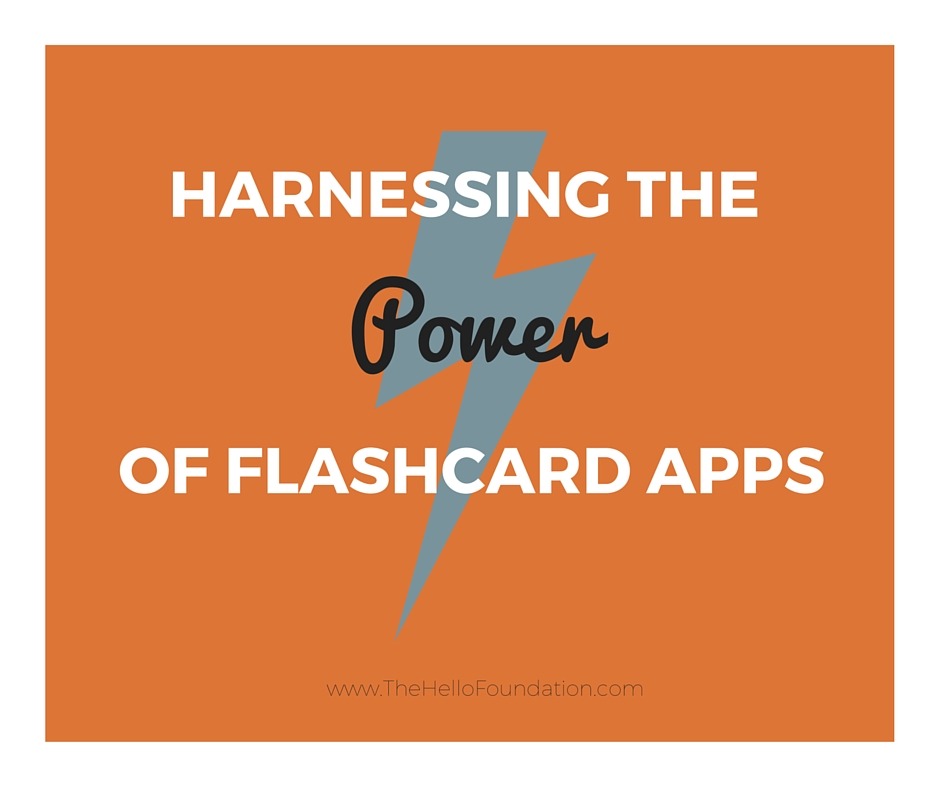Talk to almost anyone who has done articulation therapy, and at some point they have enjoyed the convenience of a deck of cards. Flashcards offer pre-selected targets with a visual representation and great opportunities for repetition and practice. Given a batch of articulation cards with words containing your target sound, it’s easy to scaffold from practicing an initial sound, to words in phrases and sentences, to more conversational tasks.
So what does technology have to offer us in the way of flashcards? Actually, quite a bit!
Benefits of Flashcard Apps
Though an app requires some investment in technology (e.g. an iPad), flashcard apps offer some significant advantages over traditional decks of paper cards:
- Individualized Practice: Many flashcard apps allow you to create your own content or search for and download shared decks of flashcards that others have created. If you download a shared deck, you can usually go in and further customize the deck to your needs by adding or deleting specific cards.
- Generalization Support: In the same way you might send a homework page home to a student, many flashcard apps allow you to “share” the electronic deck with other users. Your students might be able to review decks or exercises they have already mastered in class or at home! If a parent installs the free app on their phone, speech sound practice could happen in the car, as a break between homework assignments or over breakfast! If your student has access to an iPad at school, they may be able to practice their speech sounds when they’re done with their work, during a choice activity time, or for a moment during transitions! As a bonus, reminders and verbal cues can be added as “cards” in the deck (e.g. “Remember to keep your tongue behind your teeth”), helping teachers, aides, and parents know what words to use.
- Novelty: Students enjoy working on an iPad, and novelty can go a long way in encouraging frequent practice. In addition, decks can be changed quickly and easily, so practice doesn’t get boring!
- Cost and Space Efficiency: A free app like Bitsboard that allows you to download shared community decks is a great deal when you don’t have a big materials budget! And you can download and carry around on your iPad as many decks as you can organize and keep track of.
The 4 Best Free Flashcard Apps
If you are interested in playing with the idea of flashcards within an iPad app, here are some we recommend:
1. Bitsboard
My personal favorite for creating custom flashcards, the app makes it easy to create, find, download, modify, and share decks of flashcards. I love the option to email a parent, teacher, or SLPA with a direct link for the custom deck I just created! The free version is quite robust, though pro upgrade offers multiple user profiles and the ability to search the web for images from within the flashcard maker.
2. Smart Baby Touch
The free version downloads with a couple of play modes and allows you to use the same deck with different users. There are no sharing options.
3. Picture card maker
This app is a great option if you want to print out your cards or make picture-exchange style cards (e.g. to use on a sentence strip), though there are not as many adjustable settings as other flashcard apps. I recommend the paid version (Picture Card Maker Plus), as the free version has a lot of clickable ads.
4. Keynote/Powerpoint
Both of these presentation apps are available as iPad apps, allowing you to create a “deck” of images at your desktop computer and then swipe through them on your iPad. Easy to share with other users, you can even create games using hyperlinks embedded in the pictures!
Flashcard apps are an easy way to create your own content on the iPad. And when you use your own content, students are supported exactly at their level with individualized materials! How do you use flashcard apps in your practice?






